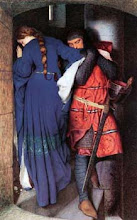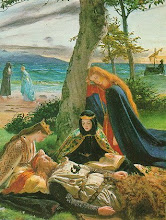No man is an island, entire of itself; every man is a piece of the continent, a part of the main. If a clod be washed away by the sea, Europe is the less, as well as if a promontory were, as well as if a manor of thy friend's or of thine own were: any man's death diminishes me, because I am involved in mankind, and therefore never send to know for whom the bells tolls; it tolls for thee... John Donne
Abstract
The historical concept that is given in the novel, For whom the Bell Tolls (1940) is that of a tendentious inspiration based in the classic-old essence that the characters compose a saga that is vivified for a historical tradition of the past. This sets itself in the warlike scenery that composes the Spanish Civil War (1936-1939) and lead up to the World War II (1939-1945), which has been perpetuated in our minds eye through constant exposure during our lives from the media rather than the literary angle. Whereas the author has in respect of the self assurance that understanding all the past life, as much of objective form, as in the individual's memory, and individual-description development, or rather, from a distinguished history, a pre-acquired transformation, whose periods of training are presented in detail. However, they do not remain hidden ahead of our eyes, but they have been seen in a much more accurate definition of what the 'old poetry' was able to represent, in the temporal being, and in the history of the previous life of the man. Thus, when referring to, the "bells" "being heard", it does not require the focus of an ideal reader, however, much more, a receiver capable of absorbing the limits of the "looking" in order to discern what the "bells" in the speech are trying to convey and emphasize. Therefore the "bells" cannot be considered the same thing for all, because they are carved out in words for each individual reader/receiver's interpretation of discovering their own understanding and meaning of "for whom the bell tolls".
Key-words: naive ; bells ; allegory ; war ; unveiling ; dessacralization
Abstract
The historical concept that is given in the novel, For whom the Bell Tolls (1940) is that of a tendentious inspiration based in the classic-old essence that the characters compose a saga that is vivified for a historical tradition of the past. This sets itself in the warlike scenery that composes the Spanish Civil War (1936-1939) and lead up to the World War II (1939-1945), which has been perpetuated in our minds eye through constant exposure during our lives from the media rather than the literary angle. Whereas the author has in respect of the self assurance that understanding all the past life, as much of objective form, as in the individual's memory, and individual-description development, or rather, from a distinguished history, a pre-acquired transformation, whose periods of training are presented in detail. However, they do not remain hidden ahead of our eyes, but they have been seen in a much more accurate definition of what the 'old poetry' was able to represent, in the temporal being, and in the history of the previous life of the man. Thus, when referring to, the "bells" "being heard", it does not require the focus of an ideal reader, however, much more, a receiver capable of absorbing the limits of the "looking" in order to discern what the "bells" in the speech are trying to convey and emphasize. Therefore the "bells" cannot be considered the same thing for all, because they are carved out in words for each individual reader/receiver's interpretation of discovering their own understanding and meaning of "for whom the bell tolls".
Key-words: naive ; bells ; allegory ; war ; unveiling ; dessacralization
http://www.nead.uncnet.br/2007/revistas/letras/9/93.pdf


































0 comments:
Post a Comment